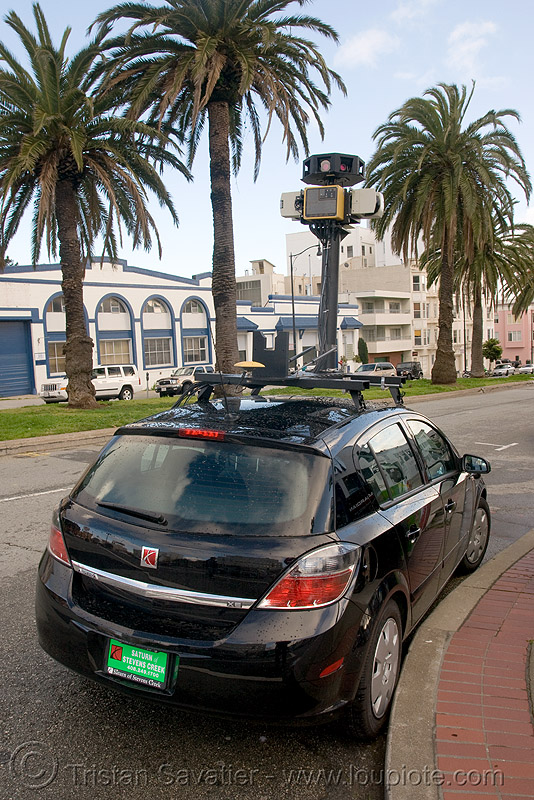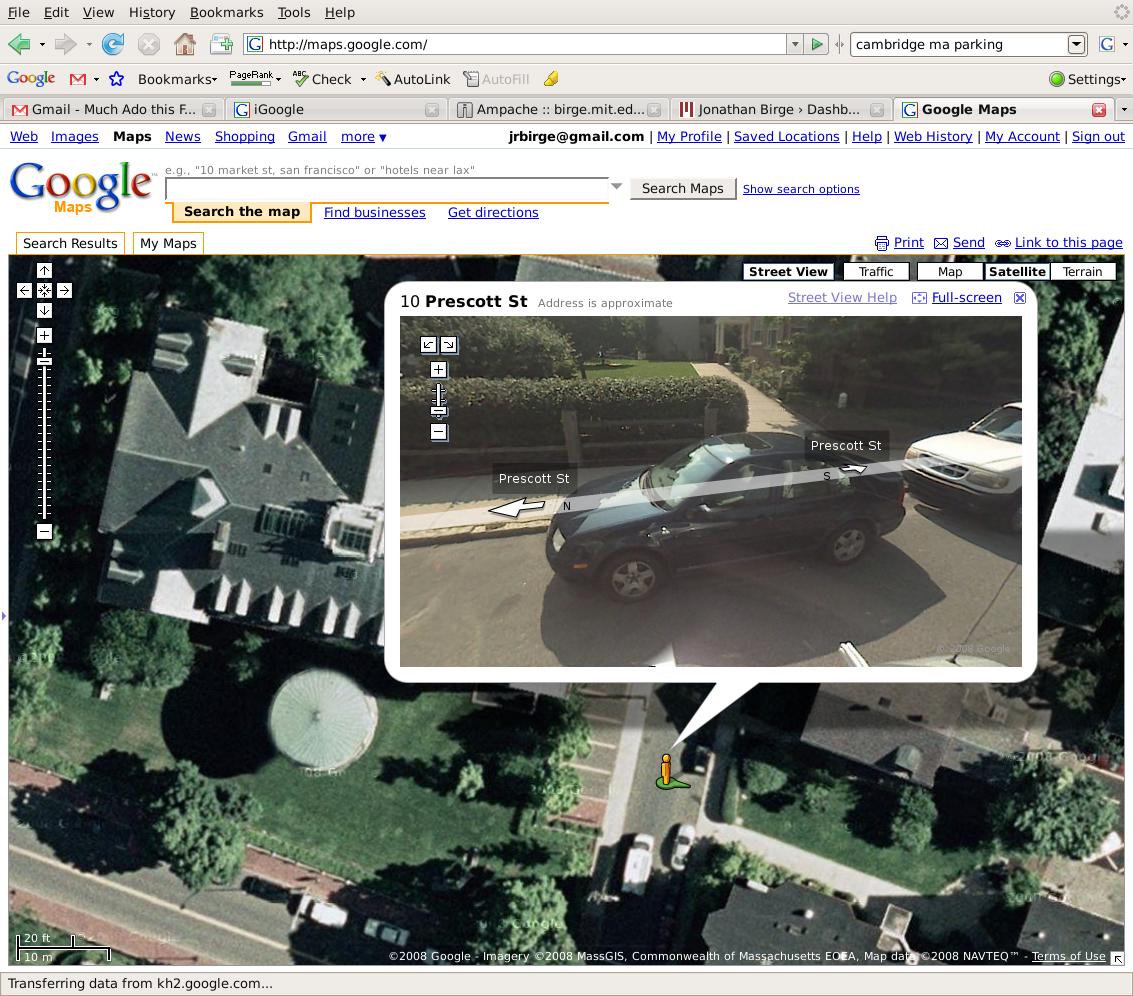Quick Summary. Google’s street view is simply a representation of reality on a specific day, and they have not highlighted any aspect of the dataset, and furthermore the dataset is comprehensive. Given the mapping between reality and the dataset that is inherent in something like Street View, one’s privacy on the day your photo was taken and one’s privacy in the dataset are commensurate, because your relative anonymity is the same in each. Arguments pointing out that certain people and websites can highlight compromising pictures are missing the point, and are like blaming camera manufacturers for the actions of paparazzi. If a company decides to single out a certain picture on somebody on Street View on your website, that company is the party violating privacy, not Google. Google is producing an unbiased representation of reality; just as in physical reality, it is the choices and actions of others who decide whether or not privacy is violated.
Recently, Google has been driving around various metropolitan areas (including Boston) in a fleet of funky-looking cars adorned with eight cameras mounting on their roofs (see below)Â profligately photographing everything within view of the street every few feet, and linking the resulting panoramic shots to their respective locations in Google Maps. Their eventual goal is to have virtually every building on every street in every major city photographed, such that you can click on a street and see a picture of the surroundings from that location. You’d have to be Mr. and Mrs. Boring to not think that’s cool.

Car used by Google to obtain panoramic Street View data.
Right now, the resolution is sufficient to find that bar from which you stumbled home one night but whose name eludes, or to get a decent idea about whether or not the Lake View Retirement Home really has one. As it grows more complete, it will be a profoundly powerful dataset, and will doubtless result in all manner of unforeseen applications. This will be especially true if Google actually uses higher resolution pictures. Do you want to see when a favorite business is open, but they don’t have a website? You could, in theory, check out the hours posted on the front of their store with sufficiently high resolution imagery. If you’re wondering about the legal parking hours on the streets near a restaurant you’re planning to visit, you could read the parking signs across town from your computer.
Unfortunately, reactionary privacy concerns have plagued the service since its inception, and if the service survives at all, it’s likely that it will be limited to low resolution pictures. Some of the criticism has predictably come from people who have been photographed doing things they shouldn’t, but much of the ire has come from people who simply think that having a picture of them taken while they were in public shouldn’t be allowed online. And I have to admit, I took pause when I found our own car parked in our usual spot:

Our car, as found on Google
However, upon further reflection, I realized that it is unreasonable to object to this as a privacy violation, for reasons that are especially clear in this particular case. Quite literally, there is going to be a nearly one-to-one correlation between the Google Street View dataset and the real world. Thus, while your image might be available to everybody, so are millions of other images. One might expect that at any given moment, the proportion of people interested in the Google picture of the specific place you were the day the google car spotted you is very roughly the same as those interested in that specific spot in real life at any given moment. Thus, for exactly the same reason you only saw a few people on the street with you at the moment the picture was taken, it’s likely only a few people are interested, at any one time, in that picture.
Continue reading →

